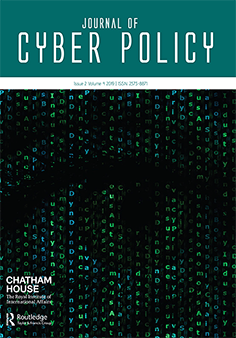December 10, 2019
James Johnson
 The following is an excerpt from the Journal of Cyber Capabilities.
The following is an excerpt from the Journal of Cyber Capabilities.
How could AI-infused cyber capabilities be used to subvert, or otherwise compromise, the reliability, control and use of states’ nuclear forces? This article argues that a new generation of artificial intelligence (AI) enhanced cyber capabilities will amplify the risk of inadvertent escalation caused by the co-mingling of nuclear and strategic non-nuclear weapons and the increasing speed of warfare, thereby increasing the risk of nuclear confrontation. It examines the potential implications of cyber (offensive and defensive) capabilities augmented with AI applications for nuclear security. The article concludes that future iterations of AI-enhanced cyber counterforce capabilities will complicate the existing challenges of cyber defence, and in turn, compromise nuclear assets and increase the escalatory effects of offensive cyber capabilities.
Writing in the Journal of Cyber Policy, James S. Johnson argues that, while AI could enable significant improvements in many military domains (including nuclear weapons), for the foreseeable future, developments in military AI will likely be far more prosaic than implied in popular culture. The main worry for nuclear stability, therefore, is that militaries will underestimate (or overstate) or ignore the potential shortcomings and risks associated with the use of the current generation of AI technology in the safety-critical military sphere – and especially the nuclear domain.
Read the article in the Journal of Cyber Capabilities.
